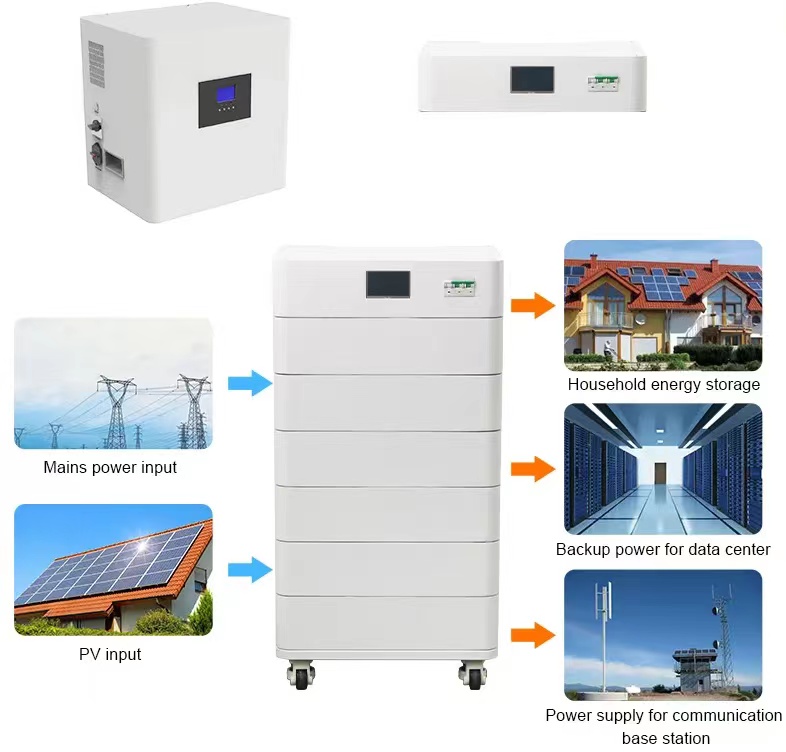Views: 202 Author: Ubest Publish Time: 2023-06-05 Origin: Site









Homeowners are increasingly interested in storing energy from their solar panels or wind turbines for use when the sun isn't shining or the wind isn't blowing. Lithium batteries are one method for storing this energy. Here's all you need to know about lithium battery storage at home.
Home lithium batteries are a form of battery in which lithium is used as the anode. Because of their high energy density, lithium batteries are commonly utilized in laptops, cell phones, and other portable electronic devices. Home lithium batteries are a newer technology that is gaining popularity in domestic energy storage systems.
Home battery storage is an excellent approach to maximizing the performance of your solar system. You may use the energy stored in your solar panels later when the sun isn't shining or when you need it the most by storing it in a battery.
When electricity is available, home lithium battery systems store energy in lithium-ion batteries and release it when demand is high. This helps to smooth out the peaks and troughs in electricity consumption, making the power system more efficient and eliminating the need for expensive power plants that only run for a few hours every day.
A home battery stores solar energy during the day so that it can be used at night or in the event of a power outage. The following are some of the benefits of a lithium battery storage system for the home:
Many people are seeking ways to save money due to the rising cost of power bills. Home lithium battery storage is an excellent solution to reduce your electric expenditure. You can save energy during the day when rates are low and use it at night when rates are higher with home battery storage.
Furthermore, lithium batteries are far more efficient than lead-acid batteries and can store significantly more energy. As a result, they are ideal for household energy storage.
Lithium batteries are being used by homeowners to store energy collected from solar panels and other renewable sources. The batteries enable homeowners to become more energy-independent while also saving money on their utility bills. Because of their high energy density and long life period, lithium batteries are becoming increasingly popular for household energy storage.
Homeowners who have installed solar panels can utilize home lithium battery storage to store the extra electricity generated by their solar panels during the day so that they can be used at night or during a power outage.
When it comes to batteries, it's critical to consider not only their functionality but also how they'll affect the environment. As a result, many individuals are turning to lithium battery storage as a more environmentally friendly solution.
Lithium battery storage is an excellent technique to help the environment. We can lessen our dependency on fossil fuels and help preserve our world for future generations by storing energy in these batteries.
Related Knowledge:Introduction to Home Energy Storage.
With the growing popularity of solar power and home energy storage, an increasing number of homeowners are thinking about installing lithium batteries in their houses. As a result, when it comes to home energy storage, there are a few factors to consider before making a purchase.
As home battery storage grows increasingly common, it is critical to consider battery capacity when making a purchase. The capacity of a house battery indicates how much electricity it can store. The average home battery can hold 5 to 10 kWh of electricity.
Lithium batteries are temperature sensitive, both high and low. When storing lithium batteries, it is critical to consider the temperature to preserve the battery's longevity and performance. High temperatures can cause the battery to degrade, whilst low temperatures can impair the capacity and performance of the battery.
Proper lithium battery storage maintenance is critical to guarantee optimal performance and longevity. Environmental factors, charging and discharging, and storage conditions are all important factors to consider when maintaining lithium batteries. The cost of running a lithium battery storage system can be substantial.
When storing these sorts of batteries, lithium battery safety is critical. When doing so, various factors must be considered, including the type of battery, the environment, and the battery's age. To minimize accidents, it is also critical to understand how to properly store lithium batteries.
When identifying the best location for lithium battery storage, there are numerous aspects to consider. Temperature is the most essential aspect. Lithium batteries should be stored in a cold, dry environment. The recommended storage temperature is between 32 and 77 degrees Fahrenheit. Why Ubest lithium battery storage is the most efficient way to store energy!
The use of the best home lithium battery storage systems to store energy generated by solar panels or other renewable energy sources is becoming more common. Here are some of the advantages of purchasing one for your home.
Ubest lithium battery storage has become more affordable in recent years, making it an appealing option for many homes. It is the most efficient, has a longer lifespan, and is more ecologically benign than other battery storage choices for household energy storage. Click here for 51.2V 100AH Rack-mounted Home Energy Storage System.
You may store up to 10kWh of energy with this system, which is enough to power your home for up to two days.
This type of device might also assist you in saving money on your utility bills.